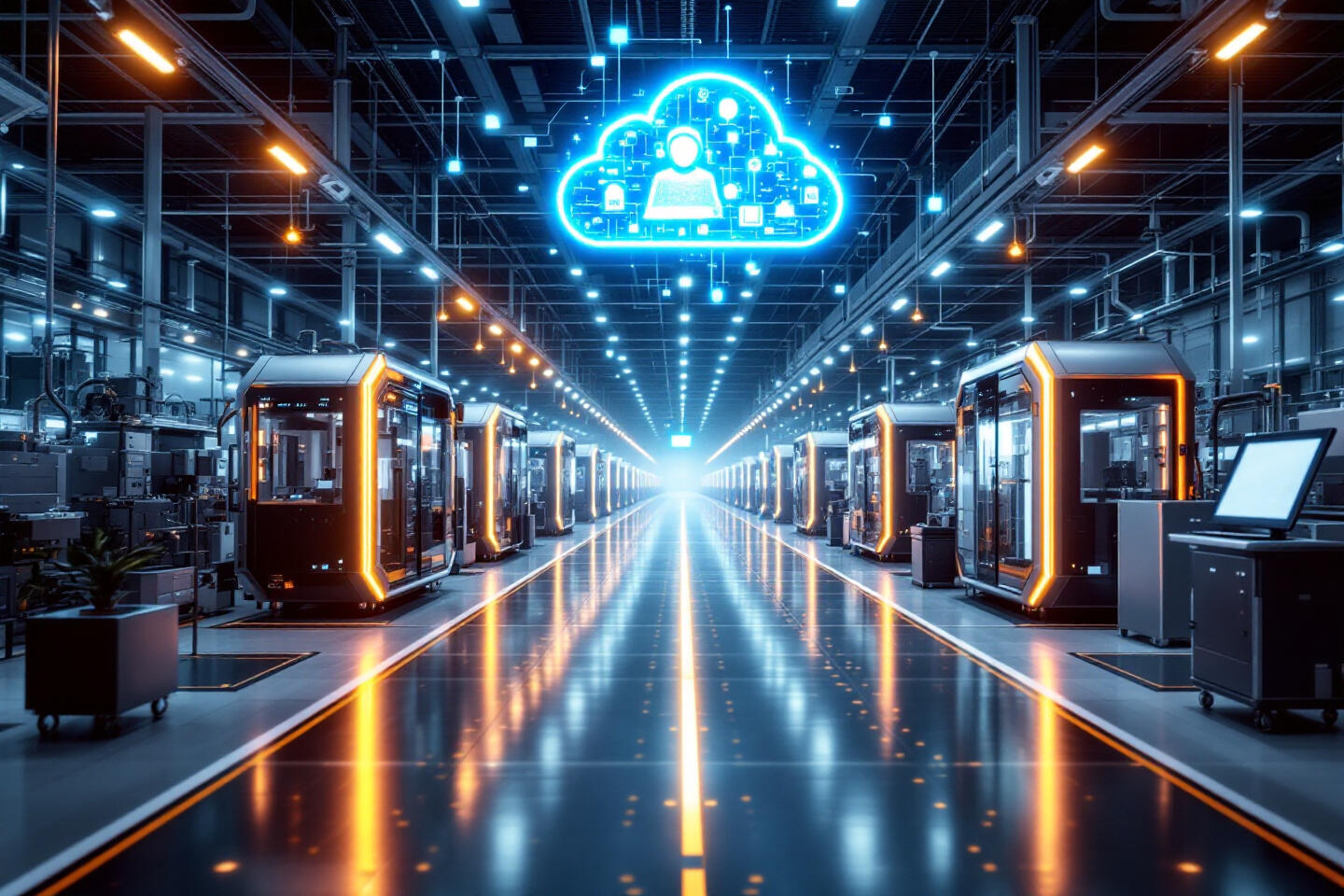

Are you wondering what exactly a Smart Factory is and how it can revolutionise your production? In this article, you'll learn everything important about the intelligent factory of the future - from the basic definition to practical implementation.
What Defines a Smart Factory?
A Smart Factory is far more than just an automated production facility. It combines cutting-edge technologies such as the Industrial Internet of Things (IIoT), artificial intelligence, and Big Data into an intelligent ecosystem. Unlike traditional factories with rigid production lines, a Smart Factory enables you to optimise your processes in real-time and respond flexibly to changes.
The Technological Cornerstones of the Smart Factory
Various key technologies that work together seamlessly form the foundation of a Smart Factory. Cloud Computing and Edge Computing ensure efficient processing of production data. Artificial Intelligence and Machine Learning analyse this data and make intelligent decisions based on it. The Industrial Internet of Things connects your machines and sensors into a smart production network.
Digital twins enable you to simulate and optimise production processes in advance. Virtual and Augmented Reality support training and maintenance work. 5G technology ensures fast and reliable communication between all systems.
The Path to Your Own Smart Factory
The transformation to a Smart Factory requires a well-thought-out strategy. The first step is a thorough analysis of your existing systems. Building on this, you develop a step-by-step integration plan for new technologies. It's important to make the transition gradual and involve employees from the start.
Make Your Machine Fleet Future-Ready!
Clouver helps you connect machines in real time and identify hidden optimisation opportunities. Our platform reduces downtime and streamlines workflows. Contact us now for a no-obligation consultation and take your production to the next level!
Practical Applications Across Different Industries
Smart Factory technologies offer specific advantages in every industry. In the automotive industry, networked production lines enable flexible just-in-time manufacturing. Mechanical engineering benefits from intelligent systems that precisely adapt to individual customer requirements. In the chemical industry, smart sensors ensure accurate control of sensitive processes.
The food industry also utilises the advantages of digitalisation: Here, intelligent systems ensure complete traceability and highest quality standards. Particularly interesting is that medium-sized companies can also benefit from Smart Factory technologies thanks to modular solutions.
Current Developments and Future Trends
The Smart Factory is constantly evolving. An important trend is the integration of sustainability aspects: Intelligent systems help you use resources more efficiently and reduce CO2 emissions. AI-supported quality control systems detect errors faster and more precisely than ever before.
Digital twins are revolutionising process optimisation by enabling you to test changes virtually in advance. Smart maintenance systems predict maintenance requirements and minimise unplanned downtime. These developments make your production not only more efficient but also more future-proof.
Mastering Challenges
The path to a Smart Factory naturally brings challenges. Data protection and IT security play a central role - here, it's essential to develop robust protection concepts. The integration of existing systems requires well-thought-out solutions. The need for skilled workers and employee qualification are also important aspects that you must consider.
[Advertisement Section] Clouver: Your IIoT Solution for Maximum Transparency! Keep track of all processes in your manufacturing – from machine status to production data. With Clouver, you can make decisions based on reliable data. Request a free demo today!
Success Stories from Practice
German companies are already impressively demonstrating how the Smart Factory becomes reality. The Siemens Smart Factory in Amberg is considered a flagship project for digitalised production. Through the use of cutting-edge technologies, productivity has been significantly increased here. Volkswagen's Transparent Factory in Dresden also demonstrates how innovative manufacturing processes can transform production.
Looking into the Future of Smart Factory
The development of the Smart Factory continues to progress steadily. Quantum Computing promises to solve complex production problems even more efficiently. New, data-driven business models open up additional opportunities for your company. International competitiveness will increasingly depend on the ability to optimally utilise these innovative technologies.
Making Success Measurable
Clear metrics are crucial for evaluating the success of your Smart Factory. Important KPIs include production capacity utilisation, throughput times, and quality rates. Real-time monitoring systems enable you to continuously monitor these values and react quickly when necessary. Regular ROI calculations also show you the economic efficiency of your investments.

Dimitri Koneger
Sales Manager
Have questions about the topic or want to learn more about our solutions?
Contact us and discover how our products can future-proof your machines. Let’s work together to find out how we can help take your production to the next level!
- +49 241 93681-500
- contact@procom-automation.de

